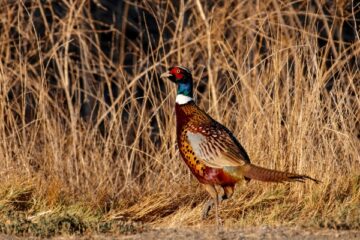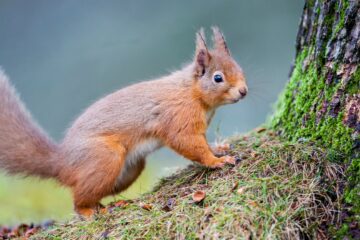Welsh General Licences and the long-term future of shooting
As Wales continues to battle the Covid-19 pandemic, we must hope shooting will begin to return to some sort of normality in the short-term.
But looking further down the road, the future shape of shooting in Wales could be adversely affected long-term by the Judicial Review (JR) of general licences instigated by Wild Justice. (Read Matt Cross’ blog on the JR and its impact on shooting here).
In England, there has been resolution to a similar legal challenge by the group run by Chris Packham and Mark Avery. England has begun publishing its new general licences for 2021. But the case is still running in Wales with a hearing scheduled for 18 December.
Unlike in England – where the Countryside Alliance, The National Gamekeepers’ Organisation and The Game Farmers Association came onboard – BASC stands alone in going down the legal channels to support government in the Welsh legal challenge.
We have drawn on our Fighting Fund to do this and hope the outcome is a licensing system that is satisfactory and workable for the end user.
The JR challenge
The challenge from Wild Justice is against the legality of Natural Resources Wales’s (NRW) General Licences that authorise the killing of specific bird species for damage to livestock and crops, public health and conservation purposes. (Click here to read the Welsh General Licences)
Packham’s group argues that an apparent lack of evidence demonstrating the level of damage of pest bird species leaves the General Licences unlawful. They believe ‘no evidence’ is akin to a negative impact in the eyes of the precautionary principle.
BASC response
BASC were very public in condemning the timing of the launch of this JR, coming as it did at the height of the first wave of the Covid-19 pandemic. We believed that this unnecessary challenge was simply diverting money and resources from tackling the health crisis. We called on Wild Justice to drop the case, but they refused.
BASC vowed to help the Welsh Government fight the JR. It is our belief that the scientific evidence and first-hand experience is enough to allow those species listed to remain on the General Licences. It is BASC’s belief that Wild Justice have no case, and in reacting to their legal threats, Natural Resources Wales have already gold plated the General Licences to an unacceptable level for the users.
Direct action was necessary
BASC members are the primary users of the General Licences and as such, we believe it’s essential that the association was registered as an interested party. Following delays in the court proceedings because of Covid-19, BASC was granted interested party status back in September. The status allows us a greater involvement in the court proceedings as it allows us sight of privileged documents and the ability to submit our own evidence.
BASC’s 86-page witness statement provided the evidence both scientifically and practically for the necessity of pest bird species to remain on the General Licences. As part of the legal case, the witness statement is publicly restricted but it has been seen by the judge, NRW and Defra. It will also be made public once the case is closed.
The work undertaken by BASC’s gamekeeping and conservation teams in helping to fight this case has been remarkable. We were determined to become involved from the outset as we believe the implications of a clear run for Wild Justice would put at risk our sport, heritage, tradition and, most importantly, conservation efforts.
Next steps
BASC’s work, on behalf of the shooting and conservation communities, continues across England, Northern Ireland, Scotland and Wales to ensure public bodies produce a workable and satisfactory licensing system that benefits conservation and shuts out all legal challenges from a group more interested in publicity than enhancing biodiversity.
Click here to read why BASC registered as an interested party.



